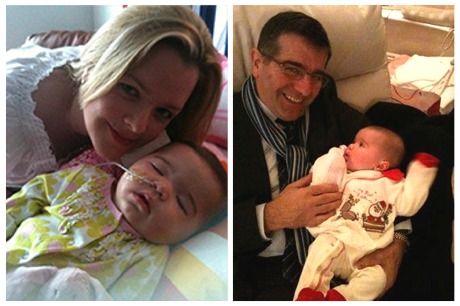|
|
Moville couple back child
palliative care hub
30.10.14
A MOVILLE couple who
suffered the tragic loss of their baby daughter are
among families supporting a vital new information
service on palliative care for children with
life-limiting illnesses.
Brian and Sharon Thompson, whose nine-month-old
daughter Victoria died from a rare and painful
illness in 2012, said more needed to be done to
support and inform families in need.
“Victoria had an incurable, untreatable rare
condition which left her in constant and severe
pain,” said Sharon.
"Her nerve endings were un-insulated. She also had
horrendous symptoms. Our first question was ‘how do
you fix it?’ Then we were told — ‘it can’t be
fixed’.”
Living in Inishowen, Brian and Sharon found it
difficult to access information and services
locally. While in the majority of cases seriously
sick children are cared for at home, Victoria was so
sick that they took up the opportunity of a place in
the LauraLynn Children’s Hospice. |
 |
|
Victoria pictured with mum Sharon and
dad Brian. |
The Thompsons said the
palliative care approach provided at the hospice was
a very positive experience for Victoria and for
them.
“Every professional had time to talk to you, to sit
with you. We were allowed to be Victoria’s parents.
We could relax a little knowing her needs were being
met. Children’s palliative care needs strong voices.
Parents should be able to give children the best,
especially children at the end of life.”
The Moville couple are among families supporting the
new cross-border Children and Young People
Palliative Care website - www.cypph.com - developed
by the All Ireland Institute of Hospice and
Palliative Care (AIIHPC).
It is designed to assist parents, guardians, carers
and the wider public in understanding what
children’s palliative care is and seeks to make it
easier to find the right information.
AIIHPC director Paddie Blaney added: “The palliative
care community, both in the Republic of Ireland and
in Northern Ireland recognised the need for a ‘go
to’ point that parents, carers and the general
public could access to get independent information
on a topic which is difficult to talk about or
gather information on."
To read Victoria's story
click here . |
|

